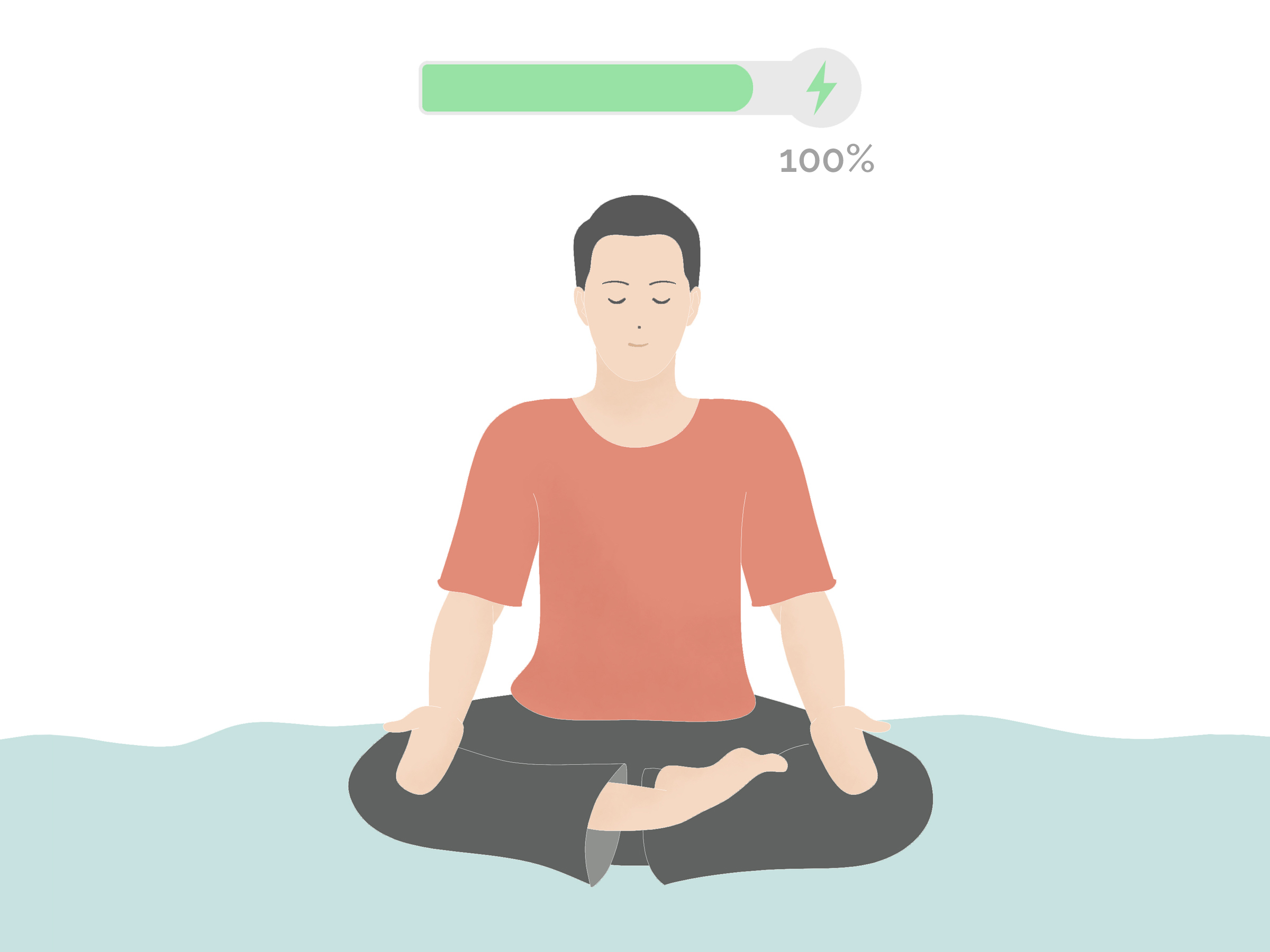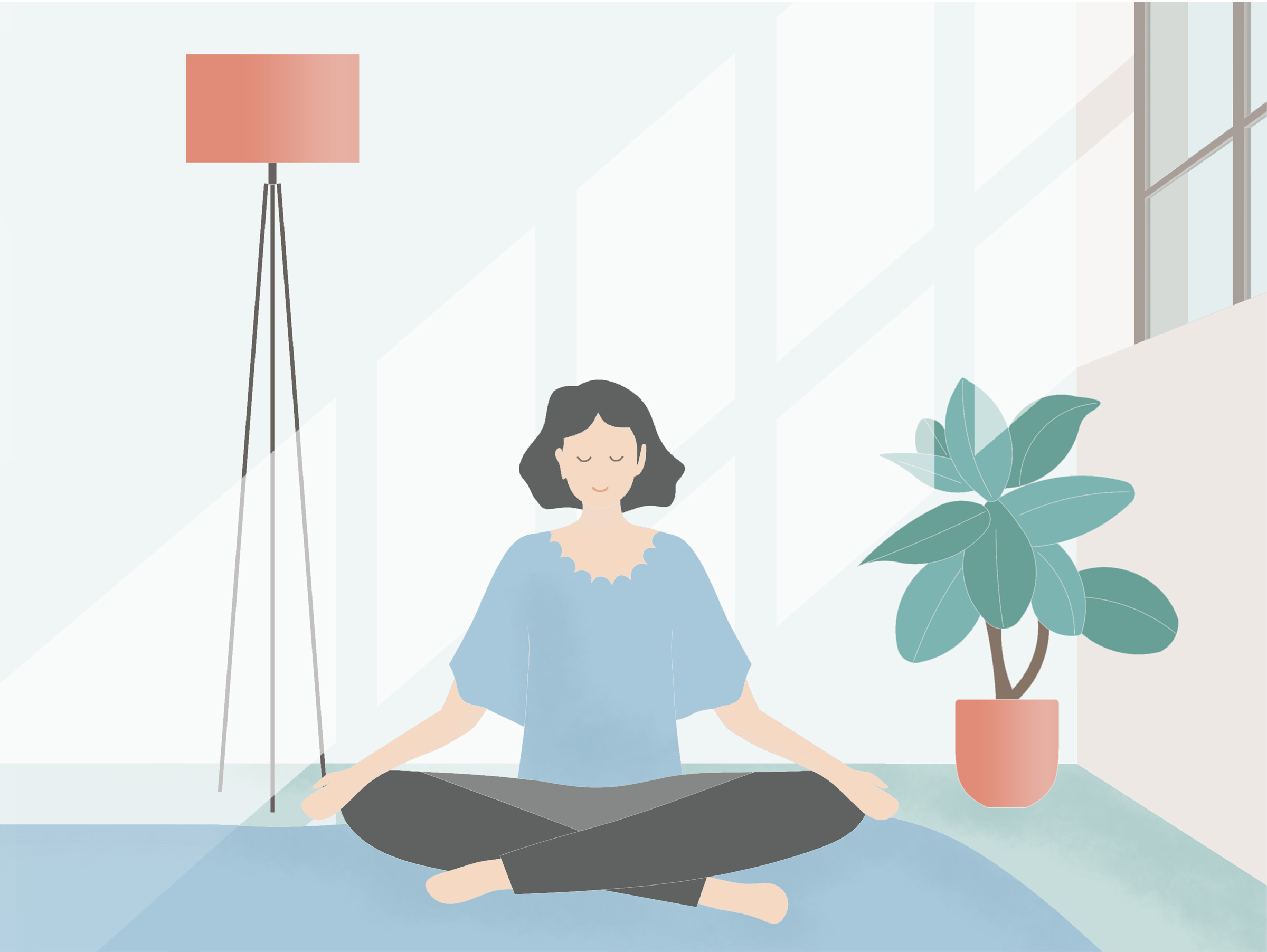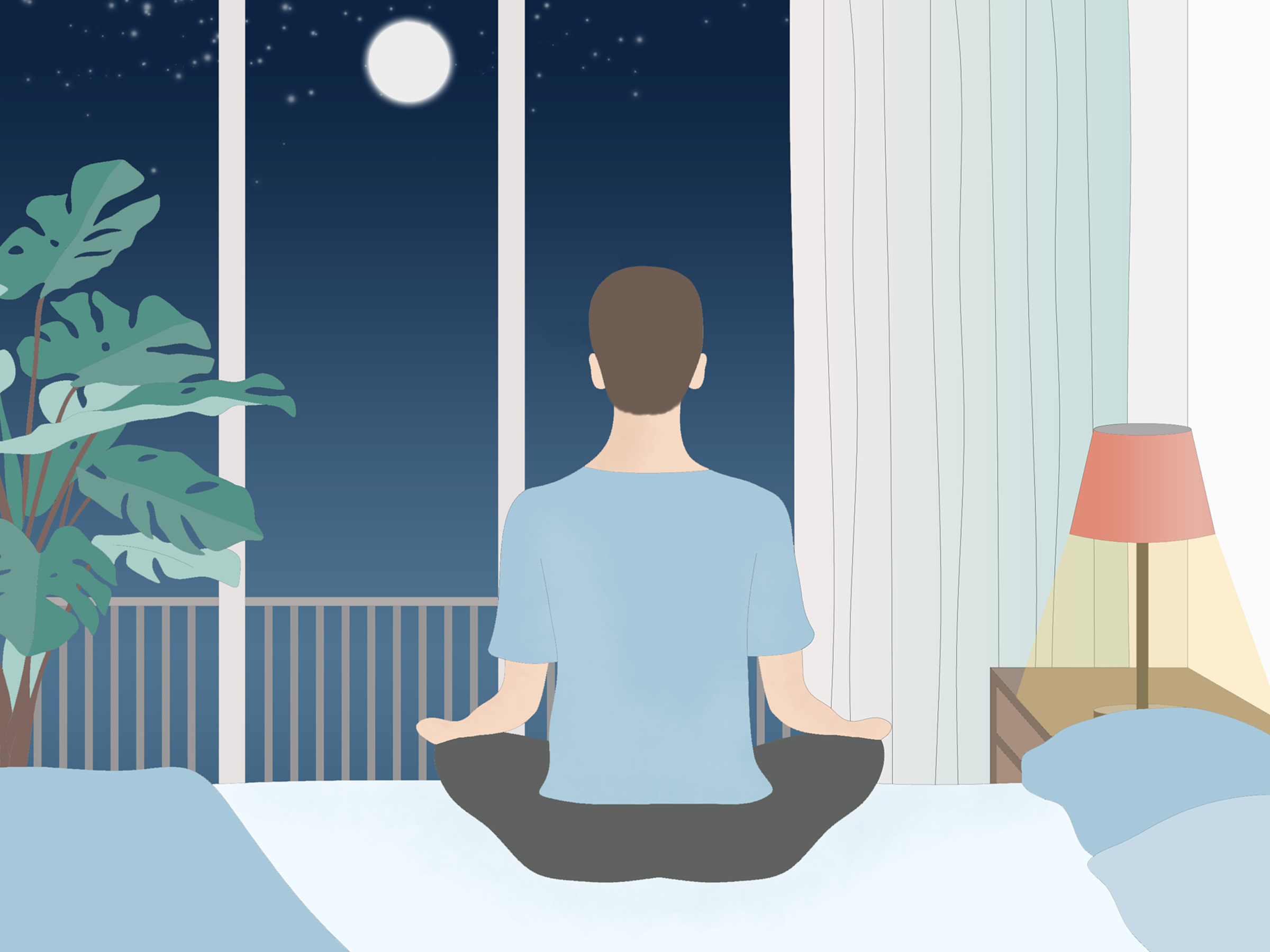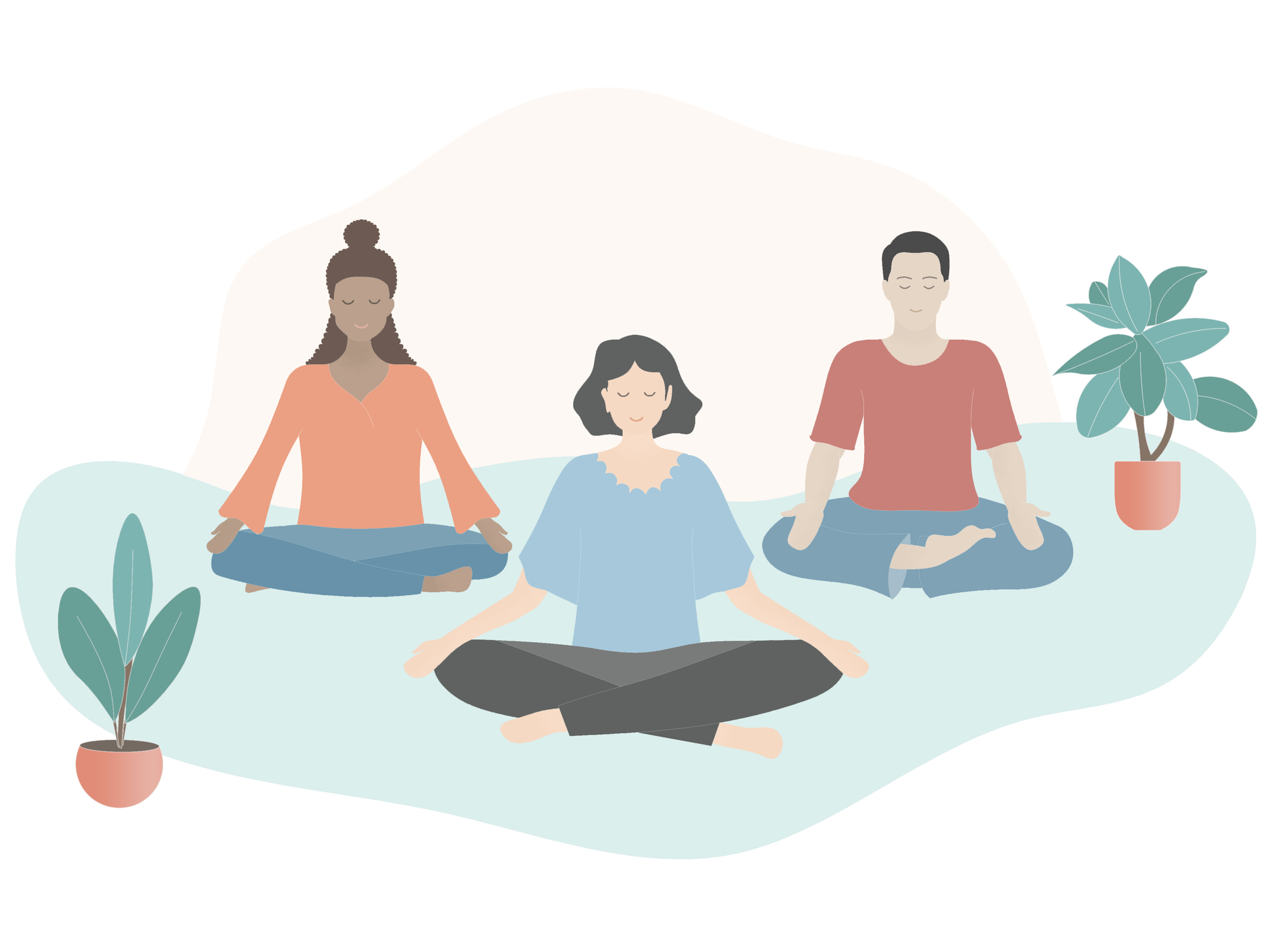Finding the right time to meditate can be tricky. Especially if you're fairly new to meditation or have never meditated before. So when is the best time to do it? Does the time of day affect the experience of meditation? How can I find time to meditate when I already have so much to do?
In reality, even a few minutes of being in a truly meditative state can be enough to bring a sense of complete calmness and clarity.
Here are a few tips for finding time to meditate and making it a habit that sticks.
Why finding time to meditate is important
The idea of yet another daily activity can seem daunting, especially with a busy schedule and a limited supply of energy. The beauty of meditation is it can make us more efficient in other tasks, and can actually save us time and energy.
Stress and anxiety slow down our minds and bodies, making it hard to do even simple tasks. Meditation is an effective way of reducing stress and removing feelings of anxiety. So the mind becomes more efficient and focused. The state of meditation is also associated with a spontaneous feeling of joy, and we even find tasks easier when we’re in a better mood!
Insomnia or insufficient sleep also makes our routine tasks seem like more of a chore. Meditation helps to relax the mind and the body, delivers a more restful night's sleep, and leaves us energised and ready to face the day.Is there a best time of day to meditate?
Is there a best time of day to meditate?
So when should you be trying to find that window of time to meditate? In reality, meditation can take place at any time, anywhere, but here are some of the best times to try.
Meditate in the morning
The majority of regular meditators practice first thing in the morning. The effects of even a few minutes of true meditation - when you are completely aware but without thoughts - last well beyond the session. Thus, you are less likely to experience stress, anxiety and other negative feelings throughout the day
On a practical note, the early morning is when you are least likely to be disturbed, both by your own mind and by your environment. Washing or showering first is a good way to make sure you’re not too sleepy to go into meditation. And do try to meditate before you start other routine tasks, such as answering emails or organising your day. This way you have the best chance of experiencing a silent mind before thoughts of the day creep in.
Traditionally, ancient forms of meditation were practiced very early in the morning, at around 4am. At this hour it's easier to go into a meditative state, as you tune in with the rhythms of nature. While many of us don't usually start our days so early, it's a great personal goal to try to experience the peace of this special time at least once.
“When you get up early in the morning your receptivity is more. Not only that, at that early hour the world is also extremely beautiful”
Shri Mataji Nirmala Devi
Meditate after work
Our work is often a source of stress, which can overspill into our personal lives. Having a short meditation when we come home from work can help leave behind any negative experiences of the day. Meditation can prove useful even if you work from home. The brief mental silence can bring us out of working mode, and help us unwind before bedtime.
If your home doesn't offer a peaceful environment, try meditating in a park or any other quiet space available to you. With an online guided meditation it can be easy to plug in your headphones and enjoy a moment of peace, before moving on to other things.
Group meditation classes, either online or offline, are also a great way to unwind after work. Collective meditations offer a whole new and amazing level of experience. Connecting with the positive energy of others is a real boost to your own practice, and can make work problems quickly fade into distant memories.
Meditate at night
Getting a good night’s sleep is important for many aspects of our health and wellbeing. Stress, tension and even depression can all lead to disturbed sleep. To improve our sleep we need to treat the underlying causes, rather than just rely on drugs.
Mental, emotional and physical stress occurs when there are energetic imbalances on our central nervous system. Meditation balances the activity on our central nervous system, releasing any tensions and blockages we have. Therefore meditating before bed can be a powerful antidote to sleeplessness by going straight to the root of the problem, rather than merely addressing the symptoms.
One great treatment to try out in combination with your evening meditation is a footsoak. This simple technique - meditating with our feet resting in a bowl of salted water - is a real boost to the inner cleansing that occurs during meditation, and is an easy way to ensure a peaceful night’s sleep.
Even if you don’t have any problem sleeping at night, it is still a good idea to meditate before bed. Our state can be heavily affected by our environment during the day, so an evening meditation is a great way to correct any internal imbalances that we may have accumulated from outside influences.
Meditate when you need it
As well establishing a regular meditation routine, you should also allow meditation to be a spontaneous activity. You can use it whenever you feel overwhelmed by your thoughts or emotions. Calming your thoughts and detaching from your surroundings - even for a minute - can be more than enough to recharge and rebalance. Some people have even been known to retreat to an office restroom stall to meditate after a particularly stressful event with their boss. It really can help!
A genuine state of meditation, where the mind is completely silent yet alert, can have an incredibly soothing impact on our psyche. Thankfully all of us can reach this state thanks to a powerful living energy within us called ‘Kundalini’ in Sanskrit. When this energy is awakened it spontaneously cleanses us of any tensions. In this way we naturally transition into meditation.
Find out more about the Kundalini energy.
A dedicated space
When you meditate can also be affected by where you meditate. Meditating after work may sound great, but if you can't find somewhere quiet it's clearly going to be tricky. While meditation has the remarkable ability to deliver beautiful inner silence, you should at least be able to sit comfortably without anyone disturbing you.
One tip is when meditating at home, try sitting in the same spot each time and keep that area free of general clutter and mess. This will help you to see meditation as an important part of your daily routine and a respected choice that you're making for yourself.
Should I meditate before or after exercise?
Like meditation, exercise helps to keep us in balance. It’s important for the two practices to complement each other to achieve overall balance. How they work together depends a lot on what time of day you usually exercise.
If you like to exercise in the morning, then try meditating beforehand. This way you have the best chance to enjoy a silent balanced mind before the day's pressures build up. If, however, you usually exercise later in the day, then meditating after your workout is a great way to wind down and completely relax the mind.
Tips for finding time to meditate
One of the problems many people experience is maintaining a regular meditation routine each day. Here are some simple ways to help you make meditation part and parcel of your daily lifestyle.
Meditation time: Form a habit
There are many small things we do on a daily basis without thinking about it. Try to see meditation as a daily cleansing event, like taking a spiritual shower, which you do at roughly the same time everyday.
While it’s important that your meditations do not become forced and regimented, some self-discipline is necessary at first to make things easier. Most of us think nothing of spending a few minutes every day brushing our teeth. We know it is important and helps us stay healthy. Your meditation should be the same. A healthy beneficial habit that comes naturally. Be patient with yourself in the beginning, as the benefits will soon crowd out any procrastination or distractions.
Group meditation
Meditating with a group is a great way to mark out a regular and essential time slot for your meditation. On top of that, meeting others who also meditate can serve as a great source of motivation as you can encourage and inspire one another.
Whether it’s online or at a physical location, there are weekly group meditations happening in hundreds of cities around the world. Find a class near you or join a live session in your timezone to help you establish your practice and experience the power of collective meditation.
Meditation days
Setting aside a whole day to go deeper in your meditation can be a fantastic boost to your regular practice. Find a peaceful environment which is beneficial to meditation. This could include a quiet spot in your garden or a nearby park, or even with a group of other practitioners.
Many regular meditation classes offer one-off day events or even weekend retreats. They aim to give you the time and space you need to experience the true bliss of meditation. Find a class near you to find out more details about meditation days you can join.
How to get started
Following a regular guided meditation can be a great way to establish a routine. Our ‘Meditate Now’ tool generates a guided meditation for you based on your goal - e.g. if you wish to feel calm, joyful or focused etc. - and how much time you have available.
We Meditate also offers weekly live streamed meditations led by experienced practitioners. Not only will you be guided through an in-depth meditation session, but you will also learn more about the process of meditation and how to progress. Plus, connecting with others usually leads to a better meditation experience! We lead all sessions on a voluntary basis, completely free of charge.
Conclusion - embedding meditation in your life
Hopefully you now know the basics of getting the best out of your meditation practice. The key thing when you start is to try out different options to see which suits you best. Give it time, be patient and after a short time you will definitely start to feel the real benefits of regular meditation.
Do not worry if you miss a session or if one meditation is 'difficult'. Just persevere and keep going, one day at a time. Remember that the power of regular meditation really comes into its own when you face challenges in life. Don't give up just because you receive some bad news, or things aren't going right. That's the exact time when you need the balance of meditation the most.
Final note: If you treat your meditation practice with respect and dedication it will repay you a thousand times over. It is a potentially life-changing experience for those who are serious about reaping the benefits. So enjoy, stay calm and meditate on!



